Boston Brahmin

The Boston Brahmins or Boston elite are members of Boston's traditional old upper class.[1] They are often associated with Harvard University, Anglicanism, aristocratic clubs such as the Somerset in Boston, the Knickerbocker in New York, the Metropolitan in Washington D.C., and traditional Anglo-American customs and clothing. Descendants of the earliest English colonists are typically considered to be the most representative of the Boston Brahmins.[2][3]
Etymology
The doctor and writer Oliver Wendell Holmes, Sr. coined the term "Brahmin Caste of New England" in an 1860 story in The Atlantic Monthly.[4] The term Brahmin refers to the highest-ranking caste of people in the traditional Hindu caste system in India; by extension, it was applied in the United States to the old, wealthy New England families of British Protestant origin which became influential in the development of American institutions and culture over the course of its history. The influence of this old gentry is lesser in modern times, although some vestiges of it remain, primarily in the institutions and ideals that they championed in their heyday.[5]
Characteristics

The nature of the Brahmins is hinted at by the doggerel "Boston Toast" by Holy Cross alumnus John Collins Bossidy:
While some 19th-century Brahmin families of large fortune were of bourgeois origin, still fewer were of a somewhat aristocratic origin. The new families were often the first to seek, in typically British fashion, suitable marriage alliances with those old aristocratic New England families that were descended from landowners in England to elevate and cement their social standing. The Winthrops, Dudleys, Saltonstalls, Winslows, and Lymans (descended from English magistrates, gentry, and aristocracy) were, by and large, happy with this arrangement. All of Boston's "Brahmin elite", therefore, maintained the received culture of the old English gentry, including cultivating the personal excellence that they imagined maintained the distinction between gentlemen and freemen, and between ladies and women. They saw it as their duty to maintain what they defined as high standards of excellence, duty, and restraint. Cultivated, urbane, and dignified, a Boston Brahmin was supposed to be the very essence of enlightened aristocracy.[8][9] The ideal Brahmin was not only wealthy, but displayed what was considered suitable personal virtues and character traits.
The Brahmin was expected to maintain the customary English reserve in his dress, manner, and deportment, cultivate the arts, support charities such as hospitals and colleges, and assume the role of community leader.[10]: 14 Although the ideal called on him to transcend commonplace business values, in practice many found the thrill of economic success quite attractive. The Brahmins warned each other against avarice and insisted upon personal responsibility. Scandal and divorce were unacceptable. The total system[clarification needed] was buttressed by the strong extended family ties present in Boston society. Young men attended the same prep schools, colleges, and private clubs,[11] and heirs married heiresses. Family not only served as an economic asset, but also as a means of moral restraint. Most belonged to the Unitarian or Episcopal churches, although some were Congregationalists or Methodists. Politically they were successively Federalists, Whigs, and Republicans. They were marked by their manners and once distinctive elocution. Their distinctive Anglo-American manner of dress has been much imitated and is the foundation of the style now informally known as preppy. Many of the Brahmin families trace their ancestry back to the original 17th- and 18th-century colonial ruling class consisting of Massachusetts governors and magistrates, Harvard presidents, distinguished clergy, and fellows of the Royal Society of London (a leading scientific body), while others entered New England aristocratic society during the 19th century with their profits from commerce and trade, often marrying into established Brahmin families.[12]
Brahmin families
 |
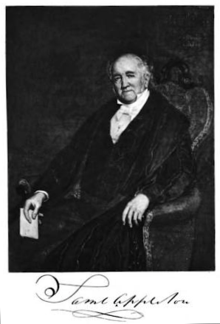 |
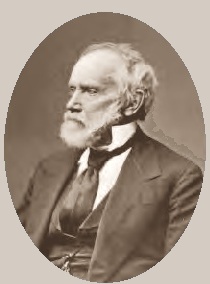 |
 |
 |
 |
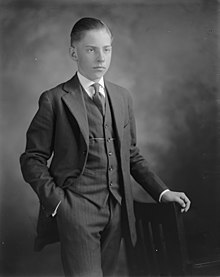 |
 |
 |
 |
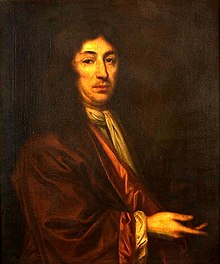 |
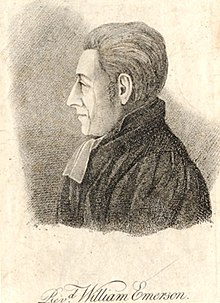 |
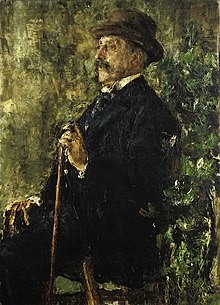 |
 |
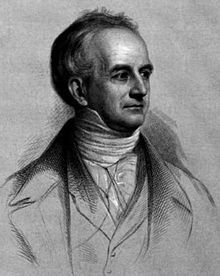 |
 |
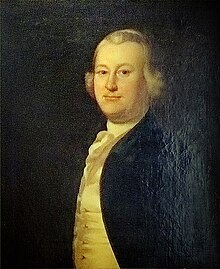 |
 |
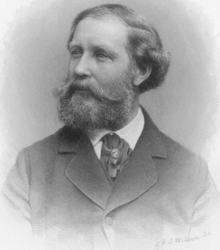 |
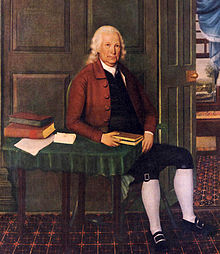 |
 |
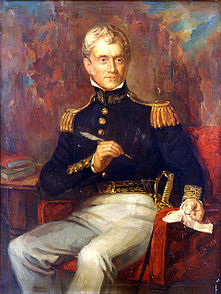 |
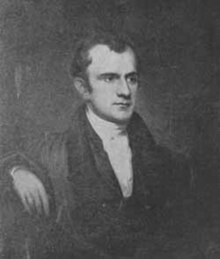 |
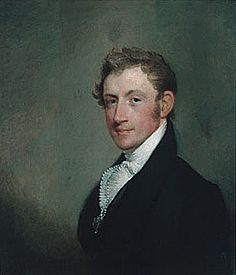 |
 |
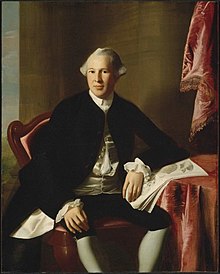 |
Adams
- Samuel Adams (1722–1803): Founding Father; second cousin of:
- John Adams (1735–1826): Founding Father and second President of the United States; husband of Abigail Smith Adams (1744–1818)
- John Quincy Adams (1767–1848): sixth President of the United States
- Charles Francis Adams, Sr. (1807–1886): Ambassador, U.S. congressman
- Charles Francis Adams, Jr. (1835–1915): Civil War general
- John Quincy Adams II (1833–1894): lawyer, politician
- Charles Francis Adams III (1866–1954): U.S. Secretary of the Navy
- Charles Francis Adams IV (1910–1999): industrialist, first president of Raytheon
- Charles Francis Adams III (1866–1954): U.S. Secretary of the Navy
- Henry Brooks Adams (1838–1918): author
- Brooks Adams (1848–1927): historian
- Charles Francis Adams, Sr. (1807–1886): Ambassador, U.S. congressman
- John Quincy Adams (1767–1848): sixth President of the United States
- Ivers Whitney Adams (1838–1914): founder of the oldest continuously playing professional baseball team, the Boston Red Stockings
Amory
- John Amory Lowell (1798–1881): merchant
- Thomas Coffin Amory (1812–1889): lawyer, author
- Thomas Jonathan Coffin Amory (1828–1864): Civil War general
- Ernest Amory Codman (1869–1940): surgeon
- Cleveland Amory (1917–1998): author
Appleton
Patrilineal line:[13]
- Daniel Appleton (1785–1849): publisher
- Frances Appleton (d. 1861): wife of Henry Wadsworth Longfellow
- George Swett Appleton (1821–1878): publisher
- Jane Means Appleton Pierce (1806–1863): wife of U.S. President Franklin Pierce, was First Lady of the United States from 1853 to 1857
- Jesse Appleton (1772–1819): second president of Bowdoin College
- John Appleton (1816–1864): assistant Secretary of State, diplomat, U.S. congressman
- John Appleton: Chief Justice of the Maine Supreme Judicial Court
- John F. Appleton (1838–1870): lawyer and Union colonel in the American Civil War
- John James Appleton (1789–1864): ambassador
- Nathan Appleton (1771–1861): U.S. congressman and merchant
- Nathaniel Appleton (1693–1784): Congregational minister
- Samuel Appleton (1625–1696): military and government leader in the Massachusetts Bay Colony and Province of Massachusetts Bay
- Samuel Appleton (1766–1853): merchant and philanthropist
- Thomas Gold Appleton (1812–1884): writer and art patron
- William Appleton (1786–1862): U.S. congressman
- William Henry Appleton (1814–1899): publisher
- William Sumner Appleton (1874–1947): philanthropist
Other notable relatives:[14][15][16]
- Thomas Storrow Brown (1803–1888): journalist, writer, orator, and revolutionary in Lower Canada (present-day Quebec)
- Edward Augustus Holyoke (1728–1829): educator and physician
- Alice Mary Longfellow (1850–1928): philanthropist and preservationist
- Ernest Wadsworth Longfellow (1845–1921): artist
- Alpheus Spring Packard (1839–1905): entomologist and palaeontologist
- William Alfred Packard (1830–1909): classical scholar
- Charles Storrow Williams (1827–1890): Director of Railroad Transportation for the Confederate States of America
- Edward H. Williams (1824–1899): physician and railroad executive
Bacon
- Robert Bacon (1860–1919): U.S. Secretary of State
- Robert L. Bacon (1884–1938): U.S. congressman
- Gaspar G. Bacon (1886–1947): politician
- Gaspar G. Bacon, Jr. (1914–1943): actor
Bates
Originally from Boston and Britain:
- Benjamin Bates I (c. 1651–1710);[17][clarification needed][18] merchant banker, family patriarch
- Benjamin Bates II (1716 – c. 1820);[19] member of the Hell Fire Club, revolutionary
- Frederick Bates (1777–1825); politician
- James Woodson Bates (1788–1846); judge
- Joshua Bates (financier); Barings Bank partner, managed many Brahmin family fortunes, advised Adams family on Court protocol
- Edward Bates (1793–1869); U.S. Attorney General
- Benjamin Bates IV (1808–1878); philanthropist, namesake and benefactor of Bates College
Boylston
Boylston Family
- Thomas Boylston (b. 1644): doctor, family patriarch
- Zabdiel Boylston (1679–1766): physician
- Ward Nicholas Boylston (1747–1828): benefactor, Harvard University
Bradlee
Bradlee Family
- Nathan Bradley I: earliest known member born in America, in Dorchester, Boston, Massachusetts, in 1631
- Samuel Bradlee: constable of Dorchester, Massachusetts
- Nathaniel Bradlee: Boston Tea Party participant, member of Massachusetts Charitable Mechanic Association
- Josiah Bradlee I: Boston Tea Party participant; m. Hannah Putnam
- Josiah Bradlee III (Harvard): m. Alice Crowninsheld
- Frederick Josiah Bradlee I (Harvard): Director of the Boston Bank
- Frederick Josiah Bradlee, Jr. (Harvard, 1915): on the first All-American football team at Harvard; m. Josephine de Gersdorff
- Frederick Josiah Bradlee III: Broadway actor, author
- Benjamin Crowninshield Bradlee (1921–2014) (Harvard, 1942): Chief Executive Editor of The Washington Post
- Frederick Josiah Bradlee, Jr. (Harvard, 1915): on the first All-American football team at Harvard; m. Josephine de Gersdorff
- Joseph Putnam Bradlee (1783–1838), Commander of the New England Guards, chairman of the State Central Committee, Director and then President of the Boston City Council
- Samuel Bradlee, Jr.: lieutenant colonel during the American Revolutionary War
- Thomas Bradlee: Boston Tea Party participant; member of Massachusetts Charitable Mechanics Association; Member of the St. Andrews Lodge of Freemasons
- David Bradlee: Boston Tea Party participant; Captain in the Continental Army, member of the St. Andrews Lodge of Freemasons
- Sarah Bradlee: "Mother of the Boston Tea Party"
Brinley
Brinley Family
- Francis Brinley, Esq.(1632–1719): arrived from England in 1651 after the English Civil War, with his two sisters, children of auditor to King Charles I&II, his original home became Newport's White Horse Tavern, judge, book collector, landowner (RI, MA, NJ), Governor's assistant, brother in law to William Coddington (Gov RI), married to Hannah Carr (niece of Gov. Caleb Carr). Boston estate at Hanover and Elm, current site of Government Center.
- William Brinley, Esq (1656–1704): judge in Newport, co-founder of Trinity Church, Newport, RI
- William Brinley, Esq. (1677–1753): judge in Monmouth, NJ
- John Brinley (1713–1775): Brinley grist mill owner in Oakhurst, NJ
- William Brinley (1754–1840): Major in Revolutionary War
- Sylvester C. Brinley (1816–1905): founded Brinley, Ohio (aka Brinley Station) in 1855.
- William Brinley (1754–1840): Major in Revolutionary War
- John Brinley (1713–1775): Brinley grist mill owner in Oakhurst, NJ
- William Brinley, Esq. (1677–1753): judge in Monmouth, NJ
- Thomas Brinley (1661–1693): Boston/London merchant, co-founder of King's Chapel, Boston
- Colonel Francis Brinley (1690–1765): Colonel in Ancient & Honorable Artillery Company, merchant, landowner (Datchet House/Brinley Place-Roxbury, Brinley Place-Framingham), one of the richest Bostonians of the 18th century, grandfather's heir
- Francis Brinley Fogg Sr. (1795–1880): m. Mary Middleton Rutledge, TN state senator, started Nashville public schools, school board president, namesake Fogg School opened in 1875, a founder of Sewanee University of the South.
- Catherine Grace Frances Moody Nevinson Gore (1798–1861): English writer
- Francis William Brinley (1796–1859): merchant, mayor of Perth Amboy, NJ, Surveyor of NJ state.
- Francis Brinley Jr., Esq. (1800–1880): Harvard 1818, President of Boston Common Council, MA state legislator (House and Senate), clerk to Secretary of State, Daniel Webster, delegate to state constitutional convention, commander of the Ancient and Honorable Artillery Company.
- Edward Brinley (1809–1868): Importer for Edward Brinley & Co., Old Faneuil Hall, Boston
- George Brinley (1817–1875): noted book collector, pioneer of the Americanist movement
- Emily Malbone Morgan (1862–1939): founder of the Colonel Daniel Putnam Association and the Society of the Companions of the Holy Cross
- Godfrey Malbone Brinley (1864–1939): top 10 US tennis pro, later master at St. Paul's school
- Edward Brinley Adams (1871–1922): Harvard 1892/Law 1897, Harvard Law librarian
- Daniel Putnam Brinley (1873–1963): artist (painter, muralist, impressionist)
- Charles Brinley (1880–1946): silent actor
- Colonel Francis Brinley (1690–1765): Colonel in Ancient & Honorable Artillery Company, merchant, landowner (Datchet House/Brinley Place-Roxbury, Brinley Place-Framingham), one of the richest Bostonians of the 18th century, grandfather's heir
- William Brinley, Esq (1656–1704): judge in Newport, co-founder of Trinity Church, Newport, RI
- Anne Brinley Coddington (1628–1708): third wife of Governor William Coddington, who arrived with the Winthrop fleet in 1630 and became an early MA magistrate, the first Governor of Rhode Island/founder of Portsmouth and Newport, RI, and mother and grandmother of subsequent Governors.
- William Coddington Jr.(1651–1689): colonial Governor of Rhode Island
- Mary Coddington (1654–1693): wife of Gov. Peleg Sanford of RI
- William Coddington III (1680–1755): colonial Governor of Rhode Island, merchant, judge, m: Content Arnold
- Lucretia Rudolph Garfield (1832–1918): First Lady, wife of 20th U.S. President James A. Garfield
- Ted Danson (born 1947): actor, activist
- Grisell Brinley Sylvester (1635–1687): wife of Nathaniel Sylvester, together they became the first white settlers and owners of all of Shelter Island, NY. She is credited with bringing boxwoods to the colonies.
- Brinley Sylvester (1690–1752): built Sylvester Manor on Shelter Island, which was made a non-profit educational farm by the 11th generation heir.
- Franklin Delano Roosevelt (1882–1945): Harvard 1904, 32nd and longest serving President of the United States
- Benjamin Crowinshield Bradlee (1921–2014): Harvard 1942, Executive Editor of The Washington Post
Cabot
Chaffee/Chafee
Originally of Hingham, Massachusetts:[23]
- Thomas Chaffee (1610–1683), businessman and landowner
- Jonathon Chaffee (1678–1766), businessman and landowner
- Matthew Chaffee (1657–1723), Boston landowner
- Adna Romanza Chaffee (1842–1914): U.S. general
- Adna R. Chaffee, Jr. (1884–1941): U.S. general
- Zechariah Chafee (1885–1957): philosopher, civil libertarian
- John Chafee (1922–1999): U.S. senator
- Lincoln Chafee (b. 1953): former U.S. senator, former Rhode Island governor, 2016 U.S. presidential candidate for the Democratic party
Choate
- Rufus Choate (1799–1859): U.S. senator
- George C. S. Choate (1827–1896): founder of Choate Sanitarium, Pleasantville, New York
- Joseph Hodges Choate (1832–1917): lawyer, diplomat
- William Gardner Choate (1830–1920): U.S. federal judge, founder of Choate Rosemary Hall
- Sarah Choate Sears (1858–1935): art patron
- Robert B. Choate, Jr. (1924–2009): businessman
- Elizabeth Choate Spykman (1896–1965): writer
- Nathaniel Choate (1899–1965): artist, sculptor
Coffin
Originally of Newbury and Nantucket:
- Tristram Coffin (1604–1681): colonist, original owner of Nantucket
- William Coffin (1699–1775): merchant, co-founder of Trinity Church
- Sir Isaac Coffin (1759–1839): naval officer
- Charles E. Coffin (1841–1912): industrialist, U.S. congressman
- Charles A. Coffin (1844–1926): industrialist, co-founder of General Electric
- Henry Coffin Nevins (1843–1892): industrialist
- John Coffin Jones, Sr. (1750–1820): Speaker of the Massachusetts House of Representatives
- John Coffin Jones, Jr. (1796–1861): U.S. Minister to Hawaii
- Thomas Coffin Amory (1812–1889): lawyer, author
- Thomas Jonathan Coffin Amory (1828–1864): Civil War general
Coolidge
- Calvin Coolidge (1872–1933): 30th President of the United States
- T. Jefferson Coolidge (1831–1920): Financier, industrialist, and civic leader
- John Coolidge (1906–2000): businessman; son of U.S. President Calvin Coolidge
- Archibald Cary Coolidge (1866–1928): educator
- John Gardner Coolidge (1863–1936): U.S. ambassador
- Charles A. Coolidge (1844–1926): U.S. Army general
Cooper
- John Cooper (1609–1669): colonist
- Samuel Cooper (1725–1783): clergyman
- Samuel D. Cooper, Jr. (1750–1824): revolutionary
- Samuel D. Cooper III (1778–1853): trade merchant
- Priscilla Cooper Tyler (1816–1889): First Lady of the United States
- Theodore Cooper (1839–1919): civil engineer
- Frederic Taber Cooper (1864–1937): writer
Crowninshield
- Johann Casper Richter von Kronenscheldt: colonist
- Jacob Crowninshield (1770–1808): U.S. congressman
- Arent S. Crowninshield (1843–1908): U.S. Navy admiral
- Caspar Crowninshield (1837–1897): Union Army colonel
- Benjamin William Crowninshield (1837–1892): Union Army colonel
- Frederic Crowninshield (1845–1918): first president of the National Society of Mural Painters
- Benjamin Williams Crowninshield (1772–1851): 5th U.S. Secretary of Navy
- Frank Crowninshield (1872–1947): creator and editor of Vanity Fair
- Bowdin Bradlee Crowninshield (1867–1948): American naval architect
Descendants by marriage:
- William Crowninshield Endicott (1826–1900): 5th U.S. Secretary of War
- Frederick Josiah Bradlee, Jr. (1892–1970): on the first All-American football team (from Harvard)
- Benjamin Crowninshield Bradlee (1921–2014): Editor-in-chief of The Washington Post
- Quinn Crowninshield Bradlee (b. 1982): founder and CEO of FriendsOfQuinn.com
Cushing
Originally of Hingham, Massachusetts:[24]
- Caleb Cushing (1800–1879): U.S. congressman and Attorney General
- John Perkins Cushing (1787–1862): China trade merchant, investor
- Thomas Cushing (1725–1788): statesman, revolutionary
- William Cushing (1732–1810): U.S. Supreme Court justice
- Harvey Cushing (1869–1939): neurosurgeon
Descendant by marriage:
- Albert Cushing Read (1887–1967): naval officer
Dana
- Richard Dana (1699–1772): colonial Boston politician
- Francis Dana (1743–1811): revolutionary
- Richard Henry Dana, Sr. (1787–1879): lawyer, author
- Richard Henry Dana, Jr. (1815–1882): lawyer, author (Two Years Before the Mast)
Delano
- Columbus Delano (1809–1896): U.S. Secretary of the Interior
- Jane Delano (1862–1919): founder of the American Red Cross Nursing Service
- Paul Delano (1745–1842): naval officer
- Franklin Delano Roosevelt (1882–1945): President of the United States
- Frederic A. Delano (1863–1953): civic reformer and railroad president
Dudley
Dudley Family
- Thomas Dudley (1576–1653): Governor of Massachusetts, a founder of Harvard College
- Anne Dudley Bradstreet (1612–1672): first American poet, wife of Royal Governor Simon Bradstreet
- Joseph Dudley (1647–1720): Royal Governor of Massachusetts, President of the Dominion of New England, Chief Justice of New York, Member of Parliament, Lt. Governor of the Isle of Wight
- Paul Dudley (1675–1751): Chief Justice of Massachusetts, member of the Royal Society, founder of the Dudleian lectures at Harvard
- Paul Dudley Sargent (1745–1828): Army colonel and Revolutionary War hero
- Dudley Saltonstall (1738–1796): Naval commodore during the Revolution and successful privateer
Dwight
- Timothy Dwight IV (1752–1817): president of Yale University
- Joseph Dwight (1703–1765): lawyer, French and Indian War veteran
- James Dwight Dana (1813–1895): geologist
Eliot
- Samuel Eliot (banker) (1739–1820)
- Samuel Atkins Eliot (politician) (1798–1862)
- Charles William Eliot (1834–1926): president of Harvard University
- Charles Eliot (1859–1897): landscape architect
- Samuel A. Eliot II (1862–1950): president of the American Unitarian Association
- Samuel Eliot Morison (1887–1976): maritime author
- Theodore Lyman Eliot (1928–2019), diplomat
- Charles Eliot Norton (1827–1908): author
- T. S. Eliot (1888–1965): Nobel Prize-winning poet, playwright, and literary critic
Emerson
- Rev. William Emerson (1769–1811): clergyman; m. Ruth Haskins Emerson
- Ralph Waldo Emerson (1803–1882): poet; m. Lydia Jackson Emerson
- Edward Waldo Emerson, (1844–1930)
- Raymond Emerson, (1886–1977)
- Edward Waldo Emerson, (1844–1930)
- Ralph Waldo Emerson (1803–1882): poet; m. Lydia Jackson Emerson
Endicott
- William Crowninshield Endicott (1826–1900): U.S. Secretary of War
- Augustus Bradford Endicott (1818–1910): politician
- Philip Endicott Young (1885–1955): industrialist
- Henry Bradford Endicott (1853–1920): industrialist
- Henry Wendell Endicott: philanthropist (1880–1954)
Fabens
Of Marblehead and Salem:[25]
- William Fabens (1810–1883): lawyer, member of Assembly, Senate[26]
- William Chandler Fabens (1843–1903): Lynn attorney,[27] namesake of Fabens Building
- Samuel Augustus Fabens (1813–1899): master mariner in the East India and California trade[28]
- Francis Alfred Fabens (1814–1872): mercantile businessman, San Francisco judge, attorney[29]
- Joseph Warren Fabens (1821–1875): U.S. Consul at Cayenne, businessman, Envoy Extraordinary of the Dominican Republic[30]
- George Wilson Fabens (1857–1939): attorney, land commissioner and superintendent of Southern Pacific Railroad, namesake of Fabens, Texas[31]
Forbes
- John Murray Forbes (1813–1898): industrialist
- Edward W. Forbes (1873–1969): Director of the Fogg Art Museum at Harvard University from 1909 to 1944.
- John Forbes Kerry (b. 1943): United States Secretary of State, senator from Massachusetts (1985–2013)
- Elliot Forbes (1917–2006): conductor and musicologist
- Robert Bennet Forbes (1804–1889): sea captain, China merchant, ship owner, writer
Gardner
Originally of Essex county:
- Samuel Pickering Gardner (1767–1843):[32] merchant
- John Lowell Gardner (1808–1884): merchant
- John Lowell Gardner II (1837–1898): merchant
- Augustus P. Gardner (1865–1918): U.S. congressman
Gillett
- Jonathan Gillett (1609–1677): colonist
- Edward Bates Gillett (1817–1899): attorney
- Frederick Huntington Gillett (1851–1935): 37th Speaker of the United States House of Representatives
- Arthur Lincoln Gillett (1859–1938): clergyman
Hallowell
- Benjamin Hallowell Carew (1761–1834): British Naval Officer and Loyalist from Jamaica Plain
- Ward Nicholas Boylston (1747–1828): Born Ward Hallowell, Boylston Street in Boston and the town of Boylston, Massachusetts are named for him, as well as Boylston Hall at Harvard University, where he was a benefactor
- Norwood Penrose Hallowell (1839–1914): A colonel in the 54th Massachusetts regiment, Norwood Penrose was an avid abolitionist. He famously left the Somerset Club upon seeing that the curtains were closed during the 54th's victory march. Oliver Wendell Holmes Jr. described Hallowell's death as having "left a great bare space for him".
- Edward Needles Hallowell (1836–1871): An officer in the 54th Massachusetts. He and his brother were collectively portrayed by actor Cary Elwes in his role as Major Cabot Forbes in the Civil War movie Glory.
- John Hallowell: (1878–1927): Harvard Football player and assistant to Herbert Hoover in the United States Food Administration during WW1.
Healey/Dall
- Mark Healey (1791–1872): originally of New Hampshire, merchant and first president of the Merchant's Bank[33]
- Caroline Wells Healey (1822–1912), writer, feminist, and abolitionist
- Charles Henry Appleton Dall (1816–1886), first Unitarian minister to India
- William Healey Dall (1845–1912), malacologist, paleontologist, and explorer of Alaska
Holmes
- Abiel Holmes (1763–1837): clergyman
- Oliver Wendell Holmes, Sr. (1809–1894): doctor, author
- Oliver Wendell Holmes, Jr. (1841–1935): U.S. Supreme Court justice
- Oliver Wendell Holmes, Sr. (1809–1894): doctor, author
Jackson
- Edward Jackson (1708–1757): colonist; m. Dorothy Quincy Jackson
- Jonathan Jackson (1743–1810): merchant, revolutionary; m. Hannah Tracy Jackson
- Charles Jackson (1775–1855): Massachusetts Supreme Court justice
- Amelia Lee Jackson, who married Oliver Wendell Holmes, Sr. above
- Patrick Tracy Jackson (1780–1847): co-founder of the Boston Manufacturing Company
- Hannah Jackson: wife of Francis Cabot Lowell
- Charles Jackson (1775–1855): Massachusetts Supreme Court justice
- Jonathan Jackson (1743–1810): merchant, revolutionary; m. Hannah Tracy Jackson
- Lydia Jackson: wife of Ralph Waldo Emerson
- Greling Jackson
Lawrence
- Samuel Lawrence (d. 1827): revolutionary
- Amos Lawrence (1786–1852): merchant
- Amos Adams Lawrence (1814–1886): abolitionist
- William Lawrence (1850–1941): Episcopal bishop
- William Appleton Lawrence (1889–1963): Episcopal bishop
- Frederic C. Lawrence (1899–1989): Episcopal bishop
- William Lawrence (1850–1941): Episcopal bishop
- Amos Adams Lawrence (1814–1886): abolitionist
- Abbott Lawrence (1792–1855): U.S. congressman, founder of Lawrence, Massachusetts
- Luther Lawrence (d. 1839): politician
- Amos Lawrence (1786–1852): merchant
Descendant by marriage: Abbott Lawrence Lowell (1856–1943): president of Harvard University
Lodge
- John Ellerton Lodge, married Anna Cabot
- Henry Cabot Lodge (1850–1924): U.S. senator
- George Cabot Lodge (1873–1909): poet
- Henry Cabot Lodge Jr. (1902–1985): U.S. senator, U.S. Ambassador to the United Nations
- George Cabot Lodge II (b. 1927): Harvard Business School professor, 1962 U.S. Senate candidate from Massachusetts against Edward M. Kennedy
- Henry Sears Lodge (b. 1930)
- John Davis Lodge (1903–1985): 79th governor of Connecticut, U.S. ambassador
- Henry Cabot Lodge Jr. (1902–1985): U.S. senator, U.S. Ambassador to the United Nations
- George Cabot Lodge (1873–1909): poet
- Henry Cabot Lodge (1850–1924): U.S. senator
Lowell
Lyman
- Theodore Lyman (1753–1839): China trade merchant, commissioned Samuel McIntire to build one of New England's finest country houses, The Vale
- Theodore Lyman II (1792–1849): brigadier general of militia, Massachusetts state representative, mayor of Boston
- Theodore Lyman III (1833–1897): natural scientist, aide-de-camp to Major General Meade during the American Civil War, and United States congressman from Massachusetts
- Theodore Lyman IV (1874–1954): director of Jefferson Physics Lab, Harvard; eponym of the Lyman series of spectral lines. The crater Lyman on the far side of the Moon is named after him, as is the Lyman Physics Building at Harvard.
Minot
- Charles Sedgwick Minot (1852–1914): anatomist
- George Richards Minot (1885–1950): winner of the Nobel Prize in Medicine
- Henry Davis Minot (1859–1890): ornithologist
- Susan Minot (b. 1956): author
- Alexandria Minot (b. 1981): lawyer, human rights activist
Norcross
Original from Watertown, Massachusetts
- Otis Norcross (1811–1882): mayor of Boston
- Amasa Norcross (1824–1898): politician
- Eleanor Norcross (1854–1923): artist
Oakes
- Urian Oakes (1631–1681): minister and educator; president of Harvard College.
Otis
- James Otis, Jr. (1725–1783): revolutionary[34]
- Mercy Otis Warren (1728–1814): playwright, revolutionary
- Samuel Allyne Otis (1740–1814): politician
- Harrison Gray Otis (1765–1848): U.S. senator, mayor of Boston
Palfrey
- Peter Palfrey (1611–1663): one of the founders of Salem, Salem representative to the first General Court of Massachusetts Bay Colony[35][36][37]
- William Palfrey (1741–1780): American patriot, Aide-de-camp to George Washington, chief clerk to John Hancock, successful merchant[38]
- John G. Palfrey I (1796–1881): played a leading role in the creation of Harvard Divinity School, first Dean of Harvard Divinity School, U.S. Congressman from Massachusetts, Unitarian minister, historian[39]
- Francis Winthrop Palfrey (1831–1889): historian, decorated Union officer
- Sarah Palfrey Danzig (1912–1996): won 18 national tennis championship titles (singles, doubles, mixed doubles)
- John G. Palfrey V (1919–1979): member of President Kennedy's Atomic Energy Commission, Dean of Columbia University[40][41][42]
- John G. "Sean" Palfrey VI (b. 1945): pediatrician and advocate, Harvard Faculty Dean of Adams House with Judy Palfrey[43]
- John G. Palfrey VII (b. 1972): educator and author, historian, Headmaster of Phillips Andover[44]
Parkman
Parkman Family
- Samuel Parkman: (1751–1824): investor; father of
- George Parkman: physician; investor; philanthropist; victim in the Parkman–Webster murder case
- Francis Parkman, Jr.: historian; grandson of Samuel Parkman; nephew of George Parkman
Peabody
- Elizabeth Palmer Peabody (1804–1894): American educator who opened the first English-language kindergarten in the United States
- Endicott Peabody (1857–1944): Episcopal priest and founder of the Groton School for Boys
- Endicott "Chubb" Peabody (1920–1997): governor of Massachusetts
- George Peabody (1795–1869): entrepreneur and philanthropist who founded the House of Morgan[45] and the Peabody Institute
- Joseph Peabody (1757–1844): merchant, shipowner, and philanthropist whose company sailed clipper ships in the Old China Trade from its base in Salem, Massachusetts
- Mary Tyler Peabody Mann (1806–1887): American author
- Nathaniel Peabody (1774–1855)
- Richard R. Peabody (1892–1936): author of The Common Sense of Drinking, a major influence on Alcoholics Anonymous founder Bill Wilson
- Sophia Amelia Peabody Hawthorne (1809–1871): painter, illustrator, and wife of American author Nathaniel Hawthorne
Perkins
- Thomas Handasyd Perkins (1764–1854): merchant, pioneer of the China trade, philanthropist
- Charles Perkins (1823–1886): art historian, philanthropist, founder of the Museum of Fine Arts
- Edward Perkins (1856–1905): constitutional lawyer
- Maxwell Perkins (1884–1947): literary editor of Ernest Hemingway, William Faulkner, and F. Scott Fitzgerald
Phillips
- Christopher H. Phillips (1920–2008): politician and diplomat
- Samuel Phillips, Jr. (1752–1802): politician, founder of Phillips Academy
- John Phillips (1719–1795): educator, founder of Phillips Exeter Academy
- John Sanborn Phillips (1861–1949): publisher of McClure's Magazine
- Wendell Phillips (1811–1884): abolitionist
- William Phillips (1878–1968): diplomat
- Samuel Phillips (1690–1771): first pastor of the South Church of Andover.
Other notable relatives:
- Phillips Brooks (1835–1893): American Episcopal clergyman and author
- Samuel Phillips Huntington (1927–2008): Harvard political science professor and author; grandson of John Sanborn Phillips
- Charles F. Brush (1849–1929): inventor and philanthropist
- Bill Gates (1955–): billionaire software pioneer and philanthropist
Putnam
- James Putnam (1725–1789): last attorney general in Massachusetts before American Revolution; judge and politician in New Brunswick
- James Putnam (1756–1838): Canadian politician
- Israel Putnam (1718–1790): American army general during the Revolutionary War
- Colonel Daniel Putnam (1759–1831): Home at Putnam Elms
- John Day Putnam (1837–1904): WI politician
- Colonel Daniel Putnam (1759–1831): Home at Putnam Elms
- William Lowell Putnam (1861–1924) and Elizabeth Lowell Putnam
- George P. Putnam (1887–1950): publisher, explorer, husband of Amelia Earhart
- Katherine L. Putnam (1890–1983): wife of Harvey Hollister Bundy
- Roger Lowell Putnam (1893–1972): politician, businessman
Quincy
- Edmund Quincy (1602–1636): settled in Massachusetts Bay Colony in 1633
- Josiah Quincy II (1744–1775): lawyer, revolutionary
- Josiah Quincy III (1772–1864): U.S. congressman, mayor of Boston, president of Harvard
- Dorothy Quincy Hancock: wife of John Hancock
- Abigail Smith Adams (1744–1818): wife of John Adams
- John Quincy Adams (1767–1848): President of the United States
Rice
Originally of Sudbury, Massachusetts:
- Deacon Edmund Rice (1594–1663): colonist
- Alexander Hamilton Rice (1818–1895): industrialist, mayor of Boston, governor of Massachusetts, U.S. congressman
- Alexander Hamilton Rice, Jr. (1875–1956): physician, geographer and explorer
- Americus Vespucius Rice (1835–1904): general, U.S. congressman
- Edmund Rice (1842–1906): U.S. Army general, Medal of Honor recipient
- Edmund Rice (1819–1889): U.S. congressman
- Henry Mower Rice (1816–1894): U.S. senator
- Luther Rice (1783–1836): Baptist clergyman, missionary to India
- Thomas Rice (1768–1854): U.S. congressman
- William Marsh Rice (1816–1900): businessman, founder of Rice University
- William North Rice (1845–1928): geologist, educator
- William Whitney Rice (1826–1896): U.S. congressman
- William B. Rice (1840–1909): industrialist, philanthropist
Saltonstall
- Leverett Saltonstall I (1783–1845): politician, educator[46]
- Leverett Saltonstall (1892–1979): U.S. senator
- William L. Saltonstall (1927–2009): politician
- Elizabeth Saltonstall (1900–1990): lithographer and painter
- Philip Saltonstall Weld (1915–1984): World War II commando, environmentalist
- William G. Saltonstall (1905–1989): 8th Principal of Phillips Exeter Academy
Sargent
- Colonel Epes Sargent (1690–1762): colonel of militia before the Revolution and a justice of the general session court for more than 30 years
- Paul Dudley Sargent (1745–1828): Revolutionary officer, one of the founding overseers of Bowdoin College
- Harrison Tweed (1885–1969): lawyer and civic leader
- Tweed Roosevelt (1942–): great-grandson of President Theodore Roosevelt
- Harrison Tweed (1885–1969): lawyer and civic leader
- John Sargent (1750–1824): Loyalist officer during the American Revolution
- Winthrop Sargent (1753–1820): patriot, governor, politician, and writer; member of the Federalist Party
- Judith Sargent Murray (1751–1820): feminist, essayist, playwright, and poet; her home is the Sargent House Museum
- Daniel Sargent, Sr. (1730–1806): merchant, owned Sargent's Wharf in Boston
- Daniel Sargent (1764–1842): merchant, politician
- Daniel Sargent Curtis (1825–1908): lawyer, banker, trustee of the BPL, owner of Palazzo Barbaro
- Henry Sargent (1770–1845): painter and military man
- Henry Winthrop Sargent (1810–1882): horticulturist and landscape gardener
- Lucius Manlius Sargent (1786–1867): author, antiquarian, and temperance advocate
- Horace Binney Sargent (1821–1908): Civil War general, politician
- John Singer Sargent (1856–1925): artist, considered the "leading portrait painter of his generation"
- Charles Sprague Sargent (1841–1927): botanist, first director of Harvard University's Arnold Arboretum
- Winthrop Sargent Gilman (1808–1884): head of the banking house of Gilman, Son & Co. in New York City
- Epes Sargent (1813–1880): editor, poet and playwright
- Francis W. Sargent (1915–1998): 64th governor of Massachusetts
- Benjamin Crowninshield Bradlee (1921–2014) (Harvard, 1942): editor of The Washington Post
- Frances Sargent Osgood (1811–1850): poet, one of the most popular women writers during her time
- Anna Maria Wells (née Foster; ca. 1794–1868): early American poet and writer for children
- Daniel Sargent (1764–1842): merchant, politician
- Paul Dudley Sargent (1745–1828): Revolutionary officer, one of the founding overseers of Bowdoin College
Sears
- Richard Sears (1610–1676): colonist
- David Sears II (1787–1871): philanthropist, merchant, landowner
- Clara Endicott Sears (1863–1960): author, philanthropist
- Mason Sears (1899–1973): politician and ambassador
- Emily Sears: wife of Henry Cabot Lodge Jr.
- John W. Sears (1930–2014): politician
Sedgwick
- Major General Robert Sedgwick (1611-1656), immigrant, Commander of the Massachusetts Bay Colony forces
- Hon. Theodore Sedgwick (1716-1757), 4th Speaker of the United States House of Representatives
- Henry Dwight Sedgwick I (1785-1831)
- Maj. Gen. John Sedgwick (1813-1864), Union Army General
- Ellery Sedgwick (1872-1960), magazine editor
- Henry Dwight Sedgwick III (1861-1957), lawyer and author
- Edith Minturn Sedgwick (1943-1971), American socialite, actress and fashion model
- Theodore "Ted" Sedgwick, diplomat and publisher
- Kyra Sedgwick (b.1965), actress, producer and director m. Kevin Bacon, actor
- Hon. Theodore Sedgwick (1716-1757), 4th Speaker of the United States House of Representatives
Tarbox
Tarbox Family
- John Tarbox (1645–1674): colonist
- John K. Tarbox (1838–1887): U.S. congressman
- Increase N. Tarbox (1815–1888): author
Thayer
- Sylvanus Thayer (1785–1872), United States general and Father of West Point
- Nathaniel Thayer, Jr. (1808–1883): Financier, philanthropist. Partner in John E. Thayer and brother firm which he left to clerks Kidder and Peabody after his retirement. One of the most generous citizens of Boston donating Thayer Hall to Harvard University. He was an overseer of Harvard, 1866–1868, and a fellow, 1868–1875
- Nathaniel Thayer, III (1851–1911): Capitalist and pioneer railroad promoter
- Bayard Thayer (1862–1916): Millionaire sportsman, horticulturist.
- Eugene Van Rensselaer Thayer (1855–1907): Financier and Capitalist
- Eugene Van Rensselaer Thayer, Jr. (1881–1937): Harvard class of 1904. President of Merchants and Chase National Banks. Chairman of Stutz motorcars.
- James Bradley Thayer (1831–1902), American legal writer and educationist
- Ernest Thayer (1863–1940), American poet, author of "Casey at the Bat", and uncle of Scofield Thayer
- Scofield Thayer (1889–1982), American poet and publisher
- Eli Thayer (1819–1899), member of the United States House of Representatives from Massachusetts
- John A. Thayer (1857–1917), member of the United States House of Representatives from Massachusetts
- John R. Thayer (1845–1916), member of the United States House of Representatives from Massachusetts
- John Milton Thayer (1820–1906), United States Senator and Civil War general
- Webster Thayer (1857–1933), the judge at the trial of Sacco and Vanzetti
- William Greenough Thayer (1863–1934), American educator
- Sigourney Thayer (1896–1944), theatrical producer, aviator, and poet
Thorndike
- Israel Thorndike (1755–1832): merchant, politician
- Augustus Thorndike (1896–1986): physician
- George Thorndike Angell (1823–1909): lawyer, philanthropist
Tudor
- William Tudor (1750–1819): lawyer, politician, founder of the Massachusetts Historical Society
- William Tudor (1779–1830): cofounder of the North American Review and the Boston Athenaeum
- Frederic Tudor (1783–1864): Boston's "Ice King", founder of the Tudor Ice Company
- Tasha Tudor (1915–2008): illustrator and author of children's books
Warren
- Richard Warren (1578–1628): London merchant, Mayflower passenger
- James Warren (1726–1808): Army general, paymaster of American Army, president of Massachusetts Congress
- Mercy Otis Warren (1728–1814): playwright, historian, revolutionary
- Joseph Warren (1741–1775): major-general, hero/martyr of Bunker Hill, president of Massachusetts Congress, sent Paul Revere on his famous midnight ride
- John Warren (1753–1815): founder of Harvard Medical School, surgeon at Bunker Hill, co-founder of the Massachusetts Medical Society
- John Collins Warren (1778–1856): surgeon, gave first public demonstration of surgical anesthesia, a founder of The New England Journal of Medicine, president of the American Medical Association, founding dean of Harvard Medical School, and a founder of Massachusetts General Hospital
- Winslow Warren (1838–1930): American attorney who served as Collector of Customs for the Port of Boston during the second administration of Grover Cleveland
- John Collins Warren Jr. (1842–1927): surgeon and president of the American Surgical Association
- Charles Warren (1868–1954): lawyer and legal scholar who won a Pulitzer Prize for his book The Supreme Court in United States History
Weld
- Thomas Weld (born c. 1600): colonist, Puritan minister
- William Gordon Weld (1775–1825): merchant
- William Fletcher Weld (1800–1881): merchant, philanthropist
- Ezra Greenleaf Weld (1801–1874): daguerreotypist
- Theodore Dwight Weld (1803–1895): abolitionist
- Stephen Minot Weld (1806–1867): politician, educator
- George Walker Weld (1840–1905): philanthropist
- Stephen Minot Weld, Jr. (1842–1920): Civil War general
- Charles Goddard Weld (1857–1911): philanthropist
- Isabel Weld Perkins (1877–1948): philanthropist
- Philip Saltonstall Weld (1915–1984): World War II commando, environmentalist
- Tuesday Weld (b. 1943): actress
- William Weld (b. 1945): governor of Massachusetts, 2016 Libertarian Party Vice Presidential Candidate
Wigglesworth
- Michael Wigglesworth (1631–1705): colonist, clergyman
- Edward Michael Wigglesworth (c. 1693–1765): clergyman, educator
- Edward Wigglesworth (1732–1794): academician
- Edward Michael Wigglesworth (c. 1693–1765): clergyman, educator
- Richard B. Wigglesworth (1891–1960): U.S. congressman
Winthrop
Winthrop Family
Patrilineal descendants:
- John Winthrop (1588–1649): governor of Massachusetts Bay Colony[47]
- Lucy Winthrop Downing, mother of diplomat Sir George Downing, 1st Baronet, founder of New York, of Downing Street, London, and ultimately of Downing College, Cambridge, UK. Lucy's letter to her brother Governor Winthrop provided the impetus for the founding of Harvard College.
- John Winthrop the Younger (1606–1676): governor of Connecticut
- Fitz-John Winthrop (1637–1711): governor of Connecticut
- John Winthrop the Younger (1606–1676): governor of Connecticut
- John Winthrop: married Anne Dudley, granddaughter of Thomas Dudley
- John Winthrop (1714–1779): acting president of Harvard, pioneer of American science
- James Winthrop (1752–1821), Librarian and jurist.
- John Winthrop (1714–1779): acting president of Harvard, pioneer of American science
- Thomas Lindall Winthrop (1760–1841): lieutenant governor of Massachusetts
- Robert Charles Winthrop (1809–1894): lawyer, politician, philanthropist
See also
- Philadelphia Main Line
- Old Philadelphians
- First Families of Virginia
- Colonial families of Maryland
- American gentry
- Golden Square Mile
- Socialite
- Upper class
- White Anglo-Saxon Protestant
- Bourgeoisie
References
- ^ "[People & Events:] Boston Brahmins". American Experience. PBS/WGBH. Archived from the original on 17 August 2003. Retrieved 7 January 2019.
- ^ Greenwood, Andrea; Greenwood, Andrew (2011). An Introduction to the Unitarian and Universalist Traditions. Cambridge; New York: Cambridge University Press. p. 60. ISBN 9781139504539. Retrieved 7 January 2020.
- ^ https://slate.com/news-and-politics/2004/03/what-s-a-boston-brahmin.html
- ^ Holmes, Oliver Wendell (January 1860). "The Professor's Story: Chapter I: The Brahmin Caste of New England". The Atlantic Monthly. Vol. V, no. XXVII. p. 93. Retrieved 7 January 2020. The series of articles that this article was part of eventually became his novel Elsie Venner, and the first chapter of that novel was about the Brahmin caste.
- ^ https://www.newenglandhistoricalsociety.com/brief-history-boston-brahmin/
- ^ Andrews, Robert, ed. (1996). Famous Lines: A Columbia Dictionary of Familiar Quotations. New York: Columbia University Press. p. 53. ISBN 0-231-10218-6. OCLC 35593596. Retrieved 7 January 2019.
- ^ McPhee, John (2011). Giving Good Weight. New York: Farrar, Straus and Giroux. p. 163. ISBN 9780374708573. OCLC 871539336. Retrieved 7 January 2019.
- ^ Story, Ronald (1985) [1980]. Harvard and the Boston Upper Class: The Forging of an Aristocracy, 1800–1870. Middletown, Conn.: Wesleyan University Press. ISBN 9780819561350. OCLC 12022412.
- ^ Goodman, Paul (September 1966). "Ethics and Enterprise: The Values of a Boston Elite, 1800–1860". American Quarterly. 18 (3): 437–451. doi:10.2307/2710847. JSTOR 2710847.
- ^ Field, Peter S. (2003). Ralph Waldo Emerson: The Making of a Democratic Intellectual. Lanham, Md.: Rowman & Littlefield. ISBN 978-0847688425.
- ^ Story, Ronald (Fall 1975). "Harvard Students, the Boston Elite, and the New England Preparatory System, 1800–1870". History of Education Quarterly. 15 (3): 281–298. doi:10.2307/367846. JSTOR 367846.
- ^ "What's a Boston Brahmin?". Slate.com. Retrieved 2020-02-25.
- ^ Farrell, Betty (1993). Elite Families: Class and Power in Nineteenth-Century Boston. SUNY Press. ISBN 1438402325.
- ^ Muskett, Joseph James, ed. (1900). "Appleton of New England". Suffolk Manorial Families. 1. Exeter: William Pollard & Co: 330–334. Retrieved February 20, 2014.
- ^ Jewett, Issac Appleton (1801). Memorial of Samuel Appleton of Ipswich, Massachusetts: With Genealogical Notices of Some of His Descendants. Boston.
- ^ Ipswich Historical Society (1906). "A Genealogy of the Ipswich Descendants of Samuel Appleton.*". Publications of the Ipswich Historical Society. Retrieved February 16, 2014.
- ^ There is some speculation on the actual date of birth of the patriarch of the Bates family, with many agreeing on the
- ^ "Benjamin Bates, Sr". geni_family_tree. Retrieved 2016-03-22.
- ^ "Benjamin Bates, Jr". geni_family_tree. Retrieved 2016-03-22.
- ^ Sarah Bradlee Fulton
- ^ Quinn, Bradleeq. "Sarah Bradlee". Boston Tea Party Museum. Retrieved 25 August 2012.
- ^ Quinn, Bradlee. "David Bradlee". Internet Archive. Retrieved 25 August 2012.
- ^ History of the Town of Hingham, Plymouth County, Massachusetts, Solomon Lincoln Jr., Caleb Gill, Jr. and Farmer and Brown, Hingham, 1827
- ^ History of the Town of Hingham, Plymouth County, Massachusetts, Solomon Lincoln, Jr., Caleb Gill, Jr. and Farmer and Brown, Hingham, Mass., 1827
- ^ Perkins, Geo. A. (George Augustus), "Some of the descendants of Jonathan Fabens of Marblehead", 1881. Online at https://archive.org/details/someofdescendant1881perk
- ^ Perkins
- ^ Perkins
- ^ Perkins
- ^ Perkins
- ^ Perkins
- ^ "History of Fabens, Texas". Fabens Independent School District http://www.fabensisd.net/apps/pages/index.jsp?uREC_ID=337295&type=d&pREC_ID=744789
- ^ Hall, Alexandra [2009]. The New Brahmins. Boston Magazine Archived August 31, 2010, at the Wayback Machine
- ^ http://www.masshist.org/findingaids/doc.cfm?fa=fa0057
- ^ John J. Waters, The Otis Family in Provincial and Revolutionary Massachusetts (U. of North Carolina Press, 1968)
- ^ https://www.geni.com/people/Peter-Palfrey/6000000001784716766
- ^ https://www.geni.com/projects/Early-Families-of-Salem-Massachuetts/7146
- ^ https://www.ibiblio.org/eldritch/nh/mmm.html
- ^ https://guides.library.harvard.edu/hds/john-gorham-palfrey/hds/john-gorham-pafrey/home
- ^ https://guides.library.harvard.edu/hds/john-gorham-palfrey/hds
- ^ https://www.jfklibrary.org/Asset-Viewer/Archives/JFKWHP-1962-08-31-C.aspx
- ^ http://www.wikicu.com/John_Gorham_Palfrey
- ^ John G. Palfrey V
- ^ John G. "Sean" Palfrey VI
- ^ https://www.townandcountrymag.com/society/tradition/news/a3371/class-rebel/
- ^ https://www.jpmorgan.com/pages/jpmorgan/about/history/month/apr
- ^ Robert Moody, The Saltonstall Papers, 1607–1815: Selected and Edited and with Biographies of Ten Members of the Saltonstall Family in Six Generations. Vol. 1, 1607–1789 vol 2 1791–1815 (1975).
- ^ Malcolm Freiberg, "The Winthrops and Their Papers", Massachusetts Historical Society Proceedings, 1968, Vol. 80, pp 55–70
